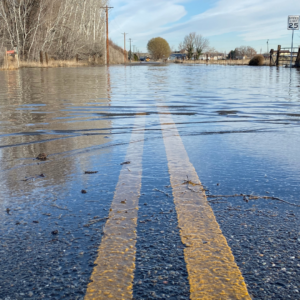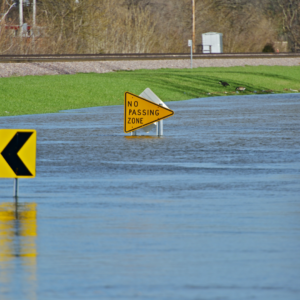 For this special guest blog edition of From the Marsh we’re turning to Richmond for some updates from the 2024 Virginia General Assembly. Grace Tucker with the Environmental Defense Fund (EDF) provides a recap of flood resilience legislation from this session.
For this special guest blog edition of From the Marsh we’re turning to Richmond for some updates from the 2024 Virginia General Assembly. Grace Tucker with the Environmental Defense Fund (EDF) provides a recap of flood resilience legislation from this session.
Increasing flood risk is impacting communities and economies across the Commonwealth, and natural infrastructure is a key piece of the solution. Virginia has the highest rate of relative sea level rise on the Atlantic Coast and rainfall intensity has increased by 18% over the last 20 years statewide, impacting communities from Covington to Chesapeake and beyond. But research also shows that for every $1 we put into flood mitigation, we’ll save at least $6 when the next flood hits.
The General Assembly has made progress on flood resilience over the past few years. From 2021-2023, Virginia’s participation in the Regional Greenhouse Gas Initiative (RGGI) raised $372.5 million for the statewide Community Flood Preparedness Fund (CFPF) for community-scale flood risk reduction planning and projects that prioritize natural infrastructure. Nearly $100 million of that has been deployed in communities throughout the James River watershed and beyond, with another $50 million to be awarded this spring.
Without RGGI, alternative funding is needed to ensure the CFPF can continue to help localities address their flood risk. That’s why EDF, James River Association (JRA), and our Virginia Conservation Network (VCN) partners supported budget amendments in the biennial budget that would put Virginia back into RGGI (4-5.12 #1h) and provide additional funding for the CFPF (359 #3h).
To supplement the CFPF, Virginia legislators established the Resilient Virginia Revolving Fund (RVRF) in 2022 to provide loans for local governments to lend to property owners for flood resilience projects. This year, the General Assembly passed HB 673 to give additional weight to low-income and natural infrastructure applications. While the Governor’s proposed 2024-2026 biennial budget included an additional $25 million for this program, it is not included in the House or Senate budgets.
 Climate resilience is an interdisciplinary challenge, but Virginia’s agencies are currently limited in their ability to support local communities in this work. Del. Hernandez’s HB 1458 follows the recommendations of a group of 39 stakeholders who participated in a Resilience Coordination Working Group last year, including EDF. The bill passed with bipartisan support and, if signed by the Governor, will create a standalone Chief Resilience Officer position tasked with convening an interagency team to increase agencies’ climate resilience. This position would also provide critical support so localities can track and apply for resilience funding opportunities. HB 1458 also increases transparency and oversight requirements for the CFPF and RVRF. EDF, JRA and our VCN partners support the bill, as well as the House budget language for 3 additional staff to complete this work (44 #2h).
Climate resilience is an interdisciplinary challenge, but Virginia’s agencies are currently limited in their ability to support local communities in this work. Del. Hernandez’s HB 1458 follows the recommendations of a group of 39 stakeholders who participated in a Resilience Coordination Working Group last year, including EDF. The bill passed with bipartisan support and, if signed by the Governor, will create a standalone Chief Resilience Officer position tasked with convening an interagency team to increase agencies’ climate resilience. This position would also provide critical support so localities can track and apply for resilience funding opportunities. HB 1458 also increases transparency and oversight requirements for the CFPF and RVRF. EDF, JRA and our VCN partners support the bill, as well as the House budget language for 3 additional staff to complete this work (44 #2h).
Virginia’s General Assembly has made key progress on resilience in the last few years, and this legislative session is no exception.

